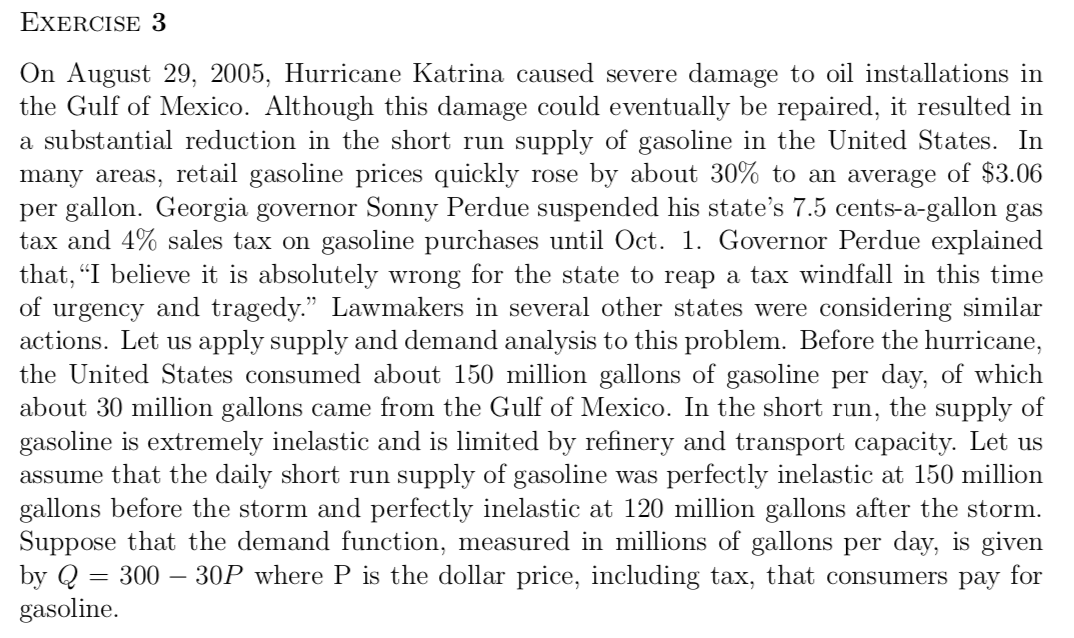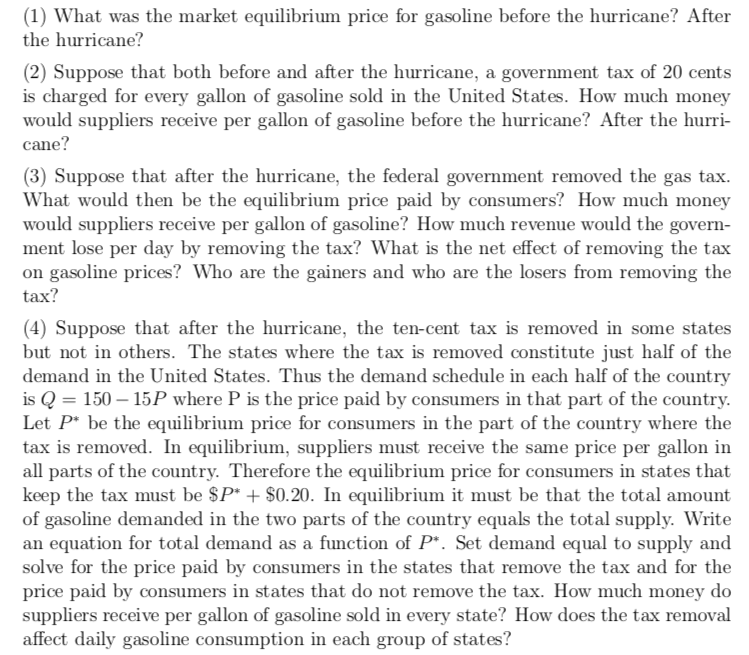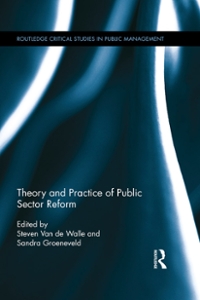Could you help solve this question?
EXERCISE 3 On August 29, 2005, Hurricane Katrina caused severe damage to oil installations in the Gulf of Mexico. Although this damage could eventually be repaired, it resulted in a substantial reduction in the short run supply of gasoline in the United States. In many areas, retail gasoline prices quickly rose by about 30% to an average of $3.06 per gallon. Georgia governor Sonny Perdue suspended his state's 7.5 centsagallon gas tax and 4% sales tax on gasoline purchases until Oct. 1. Governor Perdue explained that,\"I believe it is absolutely wrong for the state to reap a tax windfall in this time of urgency and tragedy.\" Lawmakers in several other states were considering similar actions. Let us apply supply and demand analysis to this problem. Before the hurricane, the United States consumed about 150 million gallons of gasoline per day, of which about 30 million gallons came from the Gulf of Mexico. In the short run, the supply of gasoline is extremely inelastic and is limited by renery and transport capacity. Let us assume that the daily short run supply of gasoline was perfectly inelastic at 150 million gallons before the storm and perfectly inelastic at 120 million gallons after the storm. Suppose that the demand function, measured in millions of gallons per day, is given by Q : 300 30P where P is the dollar price, including tax, that consumers pay for gasoline. (1) What was the market equilibrium price for gasoline before the hurricane? After the hurricane? (2) Suppose that both before and after the hurricane, a government tax of 20 cents is charged for every gallon of gasoline sold in the United States. How much money emuld suppliers receive per gallon of gasoline before the hurricane? After the hurri- cane? (3) Suppose that after the hurricane, the federal government removed the gas tax. What would then be the equilibrium price paid by consumers? How much money would suppliers receive per gallon of gasoline? How much revenue would the govern- ment lose per day by removing the tax? What is the net effect of removing the tax on gasoline prices? Who are the gainers and who are the losers from removing the tax? (4) Suppose that after the hurricane, the ten-cent tax is removed in some states but not in others. The states where the tax is removed constitute just half of the demand in the United States. Thus the demand schedule in each half of the country is Q = 150 - 15P where P is the price paid by consumers in that part of the country. Let P' be the equilibrium price for consumers in the part of the country where the tax is removed. In equilibrium, suppliers must receive the same price per gallon in all parts of the country. Therefore the equilibrium price for consumers in states that keep the tax must be $P* + $0.20. In equilibrium it must be that the total amount of gasoline demanded in the two parts of the country equals the total supply. Write an equation for total demand as a function of P\". Set demand equal to supply and solve for the price paid by consumers in the states that remove the tax and for the price paid by consumers in states that do not remove the tax. How much money do suppliers receive per gallon of gasoline sold in every state? How does the tax removal affect daily gasoline consumption in each group of states








